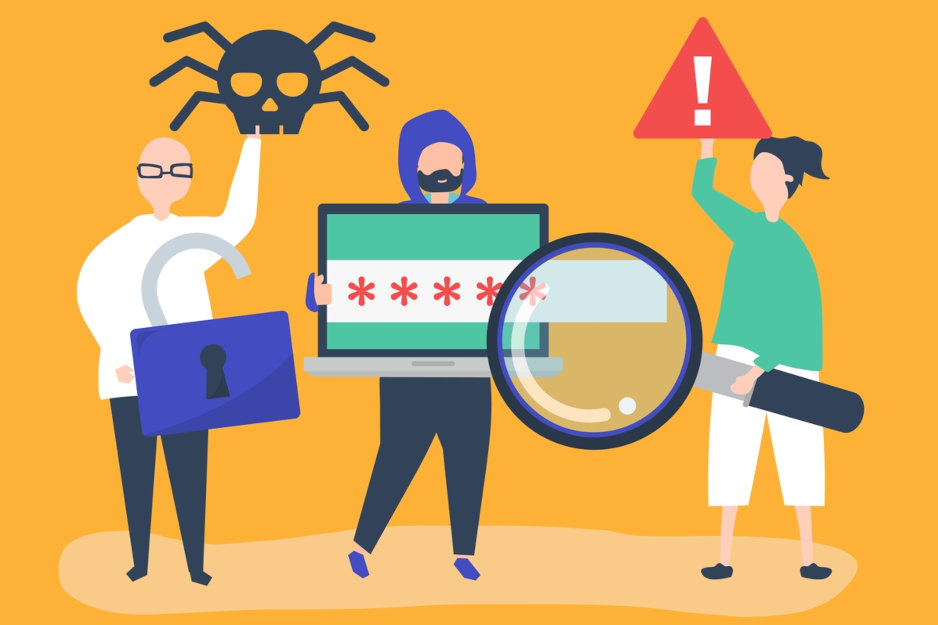Unlocking the Cyber Code: What Every Business Leader Must Know Before Hackers Do
Ever wonder if your business could survive a digital ambush without flinching? These days, being street smart isn’t just about reading the room in a crowded café or mastering body language—it’s about decoding the digital jungle where hackers and scammers lurk behind every click. The challenge? These cyber threats aren’t just lurking in the shadows; they’re evolving at lightning speed, from slick phishing schemes to eerily convincing deepfakes that could fool even the sharpest minds. And here’s the kicker—relying solely on fancy cybersecurity software is like locking your front door but leaving the windows wide open. True resilience? It demands cultivating a keen digital vigilance throughout your entire team—transforming everyone into cyber sentinels who watch, learn, and act. It’s no longer optional; it’s the new battlefield for business survival and success. Ready to sharpen those digital instincts and outsmart tomorrow’s threats? Dive in, because mastering cyber vigilance isn’t just smart—it’s essential. LEARN MORE
![]()
Key Takeaways
- Beyond traditional acumen, a sharp awareness of online threats and opportunities is now essential for navigating the digital landscape.
- Modern manipulation, from advanced phishing to deepfakes, requires businesses and individuals to continuously update their understanding of cyber risks.
- Relying solely on software without developing human cyber-awareness leaves businesses vulnerable to social engineering and human error.
- Spotting scams, securing tools, and avoiding risky online behaviors should be a cultivated trait across an entire organization, not just IT.
- While “tech-savvy” helps, a structured program like a master of science in cybersecurity provides the in-depth knowledge needed to build digital defenses and lead security initiatives.
In an increasingly digitized world, the traditional definition of “street smarts” is undergoing a significant transformation. No longer confined to navigating urban jungles, true acumen now demands an acute awareness of the virtual landscape. This includes thoroughly understanding technology and developing a keen intuition for the subtle threats and opportunities that permeate our digital interactions.
For businesses, from fledgling startups to established enterprises, cultivating digital street smarts is rapidly becoming a foundational skill that will define success and resilience in the coming decade.
The Rise of Digital Hustles and Threats
The digital realm, much like a bustling city, offers immense opportunities but also harbors insidious dangers. The rise of digital hustles, from legitimate e-commerce ventures to sophisticated cybercriminal enterprises, has created a complex environment.
From phishing to deepfakes, modern-day manipulation has reached unprecedented levels of sophistication. Phishing scams, once easily identifiable by their crude grammar, have evolved into highly convincing, personalized attacks designed to trick even the most cautious individuals. The emergence of deepfakes, capable of mimicking voices and video with unsettling accuracy, introduces a new dimension of potential manipulation and misinformation, threatening corporate reputations and even national security.
For entrepreneurs and business leaders, differentiating genuine opportunities from deceptive traps requires a finely tuned digital radar. This continuous cat-and-mouse game demands an ongoing education in the latest threats and vulnerabilities, as cybercriminals constantly refine their methods.
Entrepreneurial Blind Spots
One of the most significant entrepreneurial blind spots lies in an overconfidence in technology without a corresponding literacy in its inherent risks. Many business owners assume that comprehensive cybersecurity software alone provides impenetrable protection. While essential, technology is only one part of the equation; human behavior is the other, often neglected, component.
Human error, frequently stemming from a lack of digital street smarts, remains the weakest link in many organizational security postures. Clicking on a malicious link, falling for a well-crafted social engineering ploy, or inadvertently sharing sensitive information can bypass even the most sophisticated firewalls.
This vulnerability highlights the critical need for a proactive, human-centric approach to digital security that goes beyond mere technical implementation, fostering a culture of continuous vigilance.

Street Smarts for the Cyber World
Developing street smarts for the cyber world involves a holistic understanding of how digital threats operate and how to counteract them. It means instinctively spotting scams and suspicious digital interactions, even those that appear legitimate and benign at first glance. It also entails meticulously securing digital tools, from implementing strong, unique passwords and encrypted communication channels to always enabling multi-factor authentication for all critical accounts, rather than relying on risky shortcuts.
Additionally, it requires exercising caution with unsolicited requests, rigorously verifying identities before acting on instructions, and understanding the potential ramifications of every digital interaction before you click or share. For businesses, this translates into establishing a pervasive culture where every employee is a vigilant sentinel, capable of identifying and reporting potential threats before they escalate into costly breaches. This collective awareness is an invaluable defense.
Common-Sense vs. Cyber-Sense
This brings us to a critical training gap: the disconnect between common sense and cyber-sense. While many individuals consider themselves “tech-savvy” due to their proficiency with social media or consumer gadgets, this often doesn’t translate into cybersecurity awareness in a professional context. Formal cyber training is increasingly necessary, even for those who navigate digital spaces with ease.
For professionals seeking to deepen their expertise and equip themselves with the advanced skills needed to combat evolving threats, pursuing a Master of Science in Cybersecurity provides a structured and comprehensive education.
Such programs delve into complex areas like network security architecture, ethical hacking methodologies, advanced digital forensics, and comprehensive risk management, offering the specialized knowledge required to protect complex organizational infrastructures. It bridges the gap between basic user competence and the strategic understanding necessary to build truly resilient digital defenses and lead security initiatives.
Your Next Smart Move Is Smarter Security
Ultimately, the ability to navigate the digital landscape with an astute sense of awareness—what we’re calling digital street smarts—will undeniably be the most underrated business skill of the decade. The next smart move for any business is to prioritize smarter security as both a technical undertaking and a continuous cultivation of human vigilance and informed decision-making in a world where the virtual and real converge more with each passing day.
Embracing this mindset will not only protect valuable assets but also foster innovation, maintain customer trust, and ensure sustained growth and relevance in the increasingly complex digital age.

FAQ
What are digital street smarts in business?
Digital street smarts refer to a proactive awareness of online threats, scams, and cyber risks, combined with good judgment and decision-making in the digital space.
Why isn’t cybersecurity software enough to protect a business?
While crucial, cybersecurity software can’t prevent human error or social engineering. Employee awareness and training are key to closing the human vulnerability gap.
What are the most common digital threats businesses face?
Sophisticated phishing scams, deepfakes, social engineering, and identity spoofing are top threats that require more than basic tech knowledge to detect and avoid.
How can businesses build a culture of cyber vigilance?
By educating employees, setting clear security protocols, encouraging suspicious activity reporting, and reinforcing good cyber habits across the organization.
Who should consider a Master of Science in Cybersecurity?
Professionals seeking to lead cybersecurity initiatives, manage risk, and build advanced security strategies should pursue this degree for deeper, technical mastery.




















Post Comment